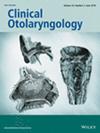Efficacy of Respiratory Training in Elderly Patients With Dysphagia: A Systematic Review and Meta-Analysis
Abstract
Objective
To evaluate the efficacy of respiratory training in elderly patients with dysphagia through a systematic review and meta-analysis of existing research data and outcomes.
Methods
Databases including PubMed, EMBASE, Web of Science, Cochrane Library, CNKI, and Wanfang were searched for studies from their inception to 2024. Included studies were randomised controlled trials involving elderly patients (aged ≥ 65 years) with diagnosed dysphagia who underwent respiratory training, such as expiratory muscle strength training or inspiratory muscle training, with a follow-up period of at least 6 months. The quality of the included studies was assessed using the Cochrane Handbook for Systematic Reviews of Interventions, and meta-analysis was conducted using RevMan 5.3.
Results
Ten RCTs were included, with five rated as high quality (Grade A), four as moderate quality (Grade B) and one as low quality (Grade C). The meta-analysis revealed significant improvements in the respiratory training group compared with the control group: forced expiratory volume in the first second (relative risk = 0.07, 95% confidence interval [CI; 0.05, 0.08], p < 0.000), peak expiratory flow (mean difference [MD] = −3.99, 95% CI [−4.88, −3.11], p < 0.000) and Penetration–Aspiration Scale score (MD = −2.16, 95% CI [−2.35, −1.98], p < 0.000).
Conclusion
Respiratory training substantially improves respiratory and swallowing function in elderly patients with dysphagia and reduces the risk of aspiration, demonstrating greater efficacy than conventional care. These findings suggest a broad potential for the application of respiratory training in dysphagia rehabilitation for elderly patients.


 求助内容:
求助内容: 应助结果提醒方式:
应助结果提醒方式:


